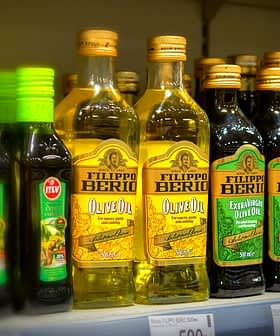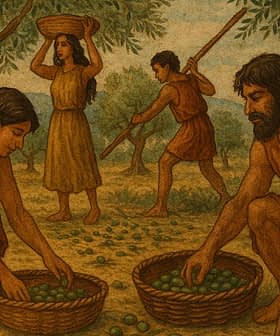New Law in Italy Establishes Role of Farmers in Protecting Environment

A new law in Italy designates farmers and agricultural cooperatives as guardians of the land, responsible for protecting the environment and promoting economic activities in rural areas at risk of abandonment and depopulation. The legislation also emphasizes the role of farmers in maintaining agricultural land to prevent hydrogeological risk, extreme weather events, wildfires, and combat biodiversity loss by promoting rural biodiversity and habitats for pollinating insects.
A new law in Italy establishes farmers and agricultural cooperatives as guardians of the land.
The legislation defines agriculture’s role in protecting the environment, promoting economic activities in areas at risk of abandonment and reversing the depopulation of rural villages.
According to the law, farmers are responsible for maintaining agricultural land, which protects against hydrogeological risk, extreme weather events and wildfires.
See Also:Italian Farmers, Producers Confirm Production ReboundThey are also deemed responsible for promoting “rural biodiversity” to conserve the natural landscape while adding value to local crops.
According to the new law, farmers combat biodiversity loss by protecting the habitats of bees and other pollinating insects, promoting the growth of nectar and pollen-producing herbaceous cover and hedges, trees and other native plant species.
Local authorities are encouraged by the law to deploy specific projects and protocols to promote the role of farmers as custodians of the land.
According to Istat, the National Institute of Statistics, there are about 1.1 million companies in the agricultural sector. Of these, 401,000 are solely dedicated to farming, including 330,000 operated by a single person. The average size of a farm in Italy is about 11 hectares.
The law also establishes the National Day of Agriculture, which will be celebrated every year on the second Sunday of November “to raise awareness about the fundamental role played by agriculture, which, in its phases of sowing, care, waiting and harvesting, embodies the essence of life.”
Central and local authorities will promote the day with communication campaigns on television and other media and initiatives in schools.
According to Italian lawmakers, agriculture “is essential for meeting the basic needs of humans and achieving the country’s economic, environmental and social well-being.”
Further strengthening the role of the category, the government will also be responsible every year for a national prize, De agri cultura, a Latin expression meaning “about agriculture.”
This prize will award €20,000 to farmers deploying innovative farming techniques or practices, which result in better quality goods and a lower environmental impact.
The definitive approval of the new law was greeted with enthusiasm by farmers’ unions.
“Such a meritorious intervention contributes decisively to a strong relaunch of the image of the primary sector, too often targeted by unacceptable accusations of environmental pollution, which in many cases have unfortunately conveyed community policies that pay little attention to those who produce healthy, high-quality food and who contribute daily with their work to defend the country’s productive capacity,” said Tommaso Battista, the president of the Agricultural Producers Confederation (Copragri).
In a similar vein, Cristiano Fini, president of the Italian Farmers Association (CIA), noted that the new law shines a spotlight “on the value of [the farmer], central not only in terms of agricultural production but also from an environmental and ecological perspective.”
“Indeed, the strategic role of the sector is not just to produce healthy and safe food for everyone, but also to ensure the maintenance and development of rural areas; to safeguard the soil and land against hydrogeological instability; to manage water resources; to produce energy from renewable sources; to defend the landscape and biodiversity,” he said.









